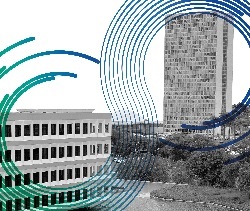Tribunal de Contas da União
Letter from the Chair of INTOSAI - July 2024

Supreme Audit Institutions (SAIs) play a crucial role in promoting good public governance, ensuring that government resources are spent as planned and in compliance with applicable laws. In addition to their audit and oversight functions, they can also contribute to medium- and long-term outcomes by anticipating policy implications and future risks, enabling governments to better prepare for uncertainties and develop more resilient and sustainable policies.
In this context, foresight emerges as a valuable tool that allows the exploration of possible futures, identification of opportunities, and mitigation of risks in an ever-evolving world. According to the UNDP Global Centre for Public Service Excellence, foresight encompasses methods and approaches such as trend analysis and scenario building to explore possible and probable futures, generating insights that enable transformative actions in the present. The goal is not to predict the future with precision but to visualize different scenarios and plan proactive actions through strategic thinking exercises.
By adopting this approach, SAIs can significantly enhance their capacity to contribute to public governance, promoting the sustainability and resilience of our institutions and societies. Foresight can be implemented through various tools and methodologies, such as big data and artificial intelligence, improving data analysis capabilities to identify trends and patterns, making analyses more precise and robust. This promotes institutional collaboration and assists policymakers in risk assessment and identification of alternatives.
The experience of the United States Government Accountability Office (GAO) illustrates well the potential of this technique. The GAO’s Foresight Centre uses this technique to analyse trends and their impacts in various policy areas, including sustainable development. This approach allows for the identification of critical issues that may affect the nation in the medium and long term, guiding audit planning and the formulation of strategic recommendations for Congress and federal agencies.
Implementing foresight in SAIs faces challenges, such as the need for financial resources, personnel training, and adequate access to necessary data. A firm commitment and continuous investment in training and development are essential.
To support this journey, the International Organization of Supreme Audit Institutions (INTOSAI) is committed to promoting the sharing of knowledge and experiences related to foresight, facilitating access to resources, training, and collaboration networks.
The Supervisory Committee on Emerging Issues (SCEI) plays a vital role in identifying and addressing new trends and challenges that have the potential to impact societies and governments, as well as assessing their implications for the entire INTOSAI community. By focusing on emerging issues, it is positioned to lead dialogue and action around strategic foresight, monitoring global trends and future developments to provide valuable insights that help SAIs anticipate significant changes in the political, economic, social, and technological environment.
Currently, the SCEI is coordinating the development of a global trends report, gathering insights from all INTOSAI committees, subcommittees, and regional groups, as well as multilateral institutions and think tanks on the subject. This report will be submitted to the INTOSAI Governing Board, allowing for deep reflection on new foresight approaches and providing valuable inputs for INTOSAI’s strategic planning. This will also enable us to consider ways to support SAIs, especially those with limited resources to conduct foresight initiatives independently.
Furthermore, the SCEI leads the INTOSAI Centre for Advanced Studies (CASt), a scientific initiative conceived by SAI Brazil and based on a think tank model. CASt aims to promote a conducive environment for applied research on priority topics, covering global issues, cross-cutting themes, and underexplored areas of public auditing, as well as supporting technical and scientific production that underpins public audit and management activities within INTOSAI. Closer ties with academia are fundamental to strengthening the organization’s capacity to tackle emerging challenges, fostering the development of new ideas and practical solutions to enhance global public auditing. The first call for proposals took place in June, with an emphasis on the impacts of artificial intelligence on SAIs, climate finance auditing, and combating hunger and poverty. As CASt consolidates, it is expected that its work will also support future trends reports.
By promoting a proactive and forward-looking approach, the SCEI can ensure that we are well-prepared to face emerging challenges. This not only enhances our ability to contribute to public governance but also reinforces our position as agile, innovative, and results-oriented institutions.
International collaboration and the sharing of best practices among SAIs from different countries are essential for the success of foresight initiatives. Participating in international networks and discussion forums on the topic, such as those promoted by INTOSAI, facilitates the exchange of knowledge and experiences, strengthening the global capacity to anticipate and respond to future challenges. In this regard, the SCEI can also serve as a platform for interaction with other foresight centres, such as those of the Organization for Economic Cooperation and Development (OECD) and the Institute for the Future (ITFT), promoting even greater integration between SAIs and these institutions.
A foresight mindset requires a commitment to a long-term perspective, distinguishing itself from short-term political cycles focused on immediate demands. Therefore, it is crucial that the vision and objectives of SAIs are proactive and encompass a long-term horizon.
I count on everyone’s engagement in this important initiative! I look forward to witnessing the innovations and improvements that will result from our joint efforts.



